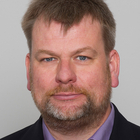Post 2015: how to reconcile the Millennium Development Goals (MDGs) and the Sustainable Development Goals (SDGs)?
Loewe, MarkusBriefing Paper (18/2012)
Bonn: German Development Institute / Deutsches Institut für Entwicklungspolitik (DIE)
Dt. Ausg. u.d.T.:
Nach 2015: wie lassen sich die Millennium Development Goals mit den in Rio beschlossenen Sustainable Development Goals verbinden?
(Analysen und Stellungnahmen 14/2012)
For the last 20 years, the international development debate has been dominated by two trends that seem at first to be heading in a similar direction. However, under closer scrutiny they differ with respect to their focus and underlying philosophies. These are on the one hand the agenda of reducing poverty in developing countries in its various dimensions (lack of income, education, water, political participation etc.) that found their expression in the Millennium Development Goals (MDGs). On the other hand, there is the idea of sustainability that became popular at the Earth Summit in Rio de Janeiro in 1992 and that at the Rio+20 summit in 2012 generated a parallel concept to the MDGs: the so called Sustainable Development Goals (SDGs).Two independent UN working groups will soon be created: One to discuss whether there should be a new global development agenda after the term of the MDGs ends in 2015, and what such an agenda should entail; the other is to compile a list of possible SDGs. This raises the question what happens if these separate processes actually result in two differing sets of goals, and if it might still be possible to merge the poverty and sustainability agendas.
Both agendas have a lot in common, but in contrast to the MDGs, the proponents of SDGs see poverty as merely one of a number of global issues to be addressed, which again makes those in favour of the MDGs afraid that poverty reduction will become secondary in an SDG agenda as just one item among many others. On the other hand, the pro-SDG side criticises the MDGs for having a too narrow concept of development and giving immediate results preference over socially, economically and ecologically sustainable ones.
Both are valid concerns, and thus it is important to find a solution that takes them both into account, while still satisfying the interests of countries around the world.
In this case it is helpful to highlight a rather technical aspect: The majority of the MDGs refer to improvements in the wellbeing of individuals, they are thus final goals of human development (education, health, access to water) to be measured at the micro-level. The SDG agenda also
involves such goals (clean air, biodiversity), but also ones that refer to the preservation or establishment of global public goods (limiting climate change, financial stability) that can thus only be measured through macroindicators. The latter are not objectives, but preconditions for sustainable development that for reasons of consistency should not enter into one agenda with final goals. Some of these are already addressed by MDG 8 (among them a fair financial and world trade system).
If one were to create two separate but mutually referring agendas for the future beyond 2015 – one concentrating on human development, the other on global public goods – it might be possible to address the most serious concerns of the proponents of either pure MDGs or pure SDGs.

